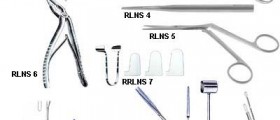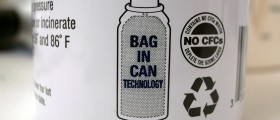
Definition
Sinusitis is the inflammation of the mucous membrane that is attached to the sinuses, and may occur due to cold, sore throat or allergies. There are two types of sinusitis:Acute, which lasts less than 3 weeks and most often occurs as a result of cold or allergy. It is usually caused by bacteria or viruses and less frequently by fungi. Chronic sinusitis usually takes at least 3 to 8 weeks, and may continue during several months or even years. Chronic sinusitis can often develop as a result of repeated acute inflammation of the sinuses, especially if it is not properly treated. But bacterial pathogens are often different from those that cause acute sinusitis.Symptoms
Typical symptoms of acute sinusitis include stuffy nose, increased secretion, a feeling of pressure and pain in the area of the affected sinus and based on that may be present headache, usually morning headache, and fever. Also, a pain in the ear and neck can appear as well as toothache, loss of taste, and watery eyes. The general symptoms include expressed fatigue and exhaustion.Symptoms of chronic sinusitis do not differ significantly from the acute sinusitis, except that they last longer, and some of them never fully withdrew in people and in certain situations can even worsen.
Treatment
After establishing a diagnosis and determining the causes of sinusitis symptoms the doctor will suggest the best treatment.Treatment of Acute Sinusitis
Acute sinusitis is usually treated with drugs that ease symptoms, reduce inflammation and treat infection. Nose-drops reduce the sense of mucosa tumescence and congestion and ease breathing through the nose. Also antibiotics are used for treating bacterial infection and different drugs are used to reduce pain.Taking large quantities of fluids and inhalation that patients can do at home may be very useful addition to the above mentioned treatment.
Treatment of Chronic Sinusitis
Given that aerobic and anaerobic bacteria present in chronic sinusitis are often different from those that cause acute sinusitis, prescribed antibiotics are also different.Symptomatic therapy is the same as in the treatment of acute sinusitis (nose-drops, pain killers, inhalation, spray moisturizer of mucosa, etc.). Sometimes doctors prescribe corticosteroid nose sprays to reduce inflammation and tumescence of mucosa.
Operative treatment is applied when drugs give no effects, or when there are complications or structural deformity (deviation of nasal septum, polyps) that prevent or hinder treatment. The most common surgical procedure that is performed today is functional endoscopic sinus surgery, which increases the natural sinus openings to allow better drainage of sinus content.
Prevention
Although it is not always possible to prevent the occurrence of acute sinusitis, some actions can be taken to reduce strength and repetition of inflammation and thus prevent the development of chronic mucosal damage. These measures include: air fresheners can bring reliefair conditioners help in ensuring equal temperature. filters that are built in devices for heating or cooling the air help in removing allergens from the air. avoiding cigarette smoke and smoky rooms. avoiding all things that can irritate and cause runny nose, eye tingling or irritating cough allergic diseases should be appropriate treated avoiding frequent consumption of alcoholic beverages. chlorine in pools can irritate the mucous membranes of the nose and sinuses so the swimming pool is not recommended for people prone to sinusitis. it is very important to start as early as possible the proper treatment of cold, flu and every other respiratory infection. proper diet that includes more fruits and vegetables increases the resistance of the organism.
















Your thoughts on this
Loading...